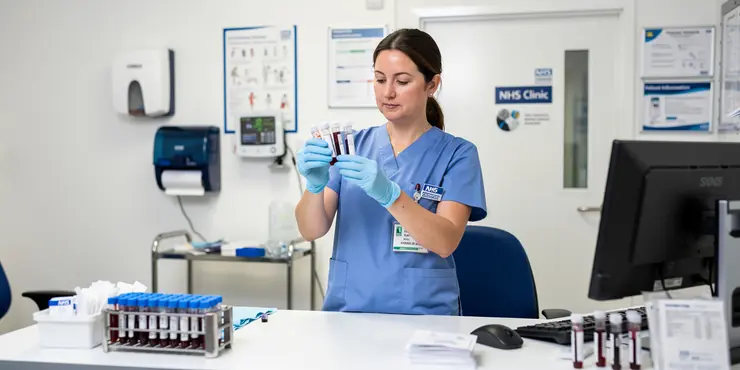
Find Help
More Items From Ergsy search
-
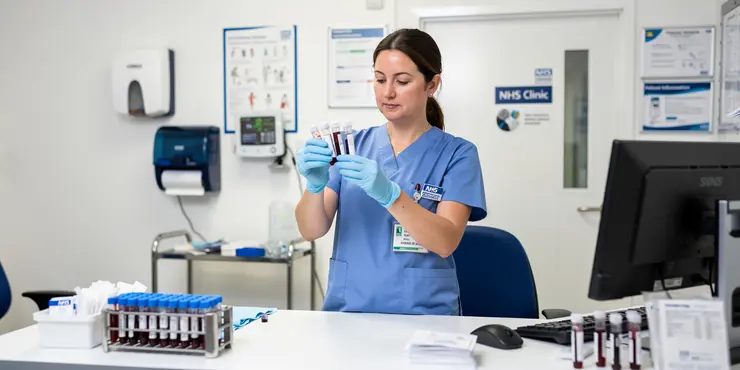
What other viruses are tested for in blood donations?
Relevance: 100%
-
Is Zika virus screened for in blood transfusions?
Relevance: 77%
-

Can you donate blood specifically for a friend or family member?
Relevance: 67%
-
Why is blood donation history important in preventing disease transmission?
Relevance: 66%
-

What diseases can be spread by blood transfusions?
Relevance: 56%
-
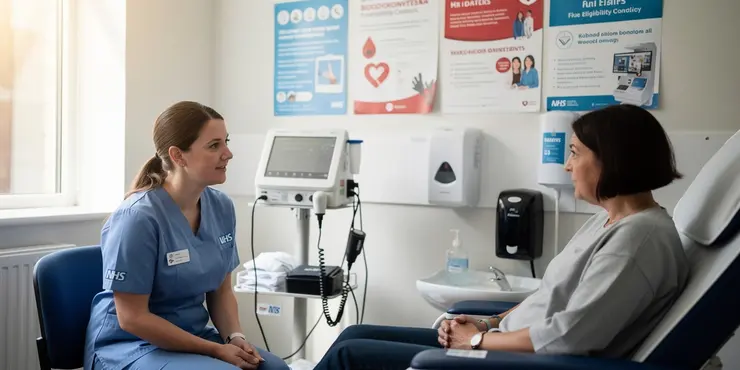
Can COVID-19 be transmitted through blood transfusions?
Relevance: 56%
-
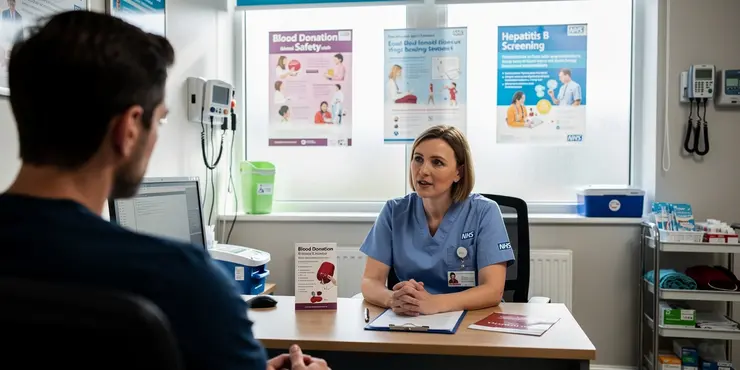
Is Hepatitis B a risk in blood transfusions?
Relevance: 55%
-
Can Dengue fever be transmitted through blood transfusions?
Relevance: 55%
-
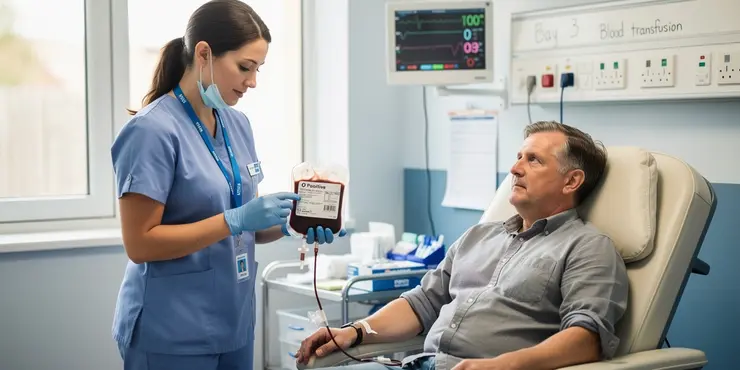
Blood Transfusion
Relevance: 52%
-

Is HTLV a risk in blood transfusions?
Relevance: 51%
-
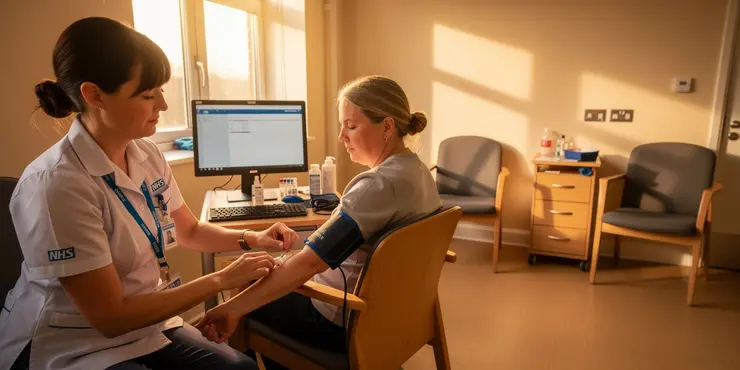
How is blood screened to prevent disease transmission?
Relevance: 51%
-
Can HIV be transmitted through blood transfusions?
Relevance: 51%
-
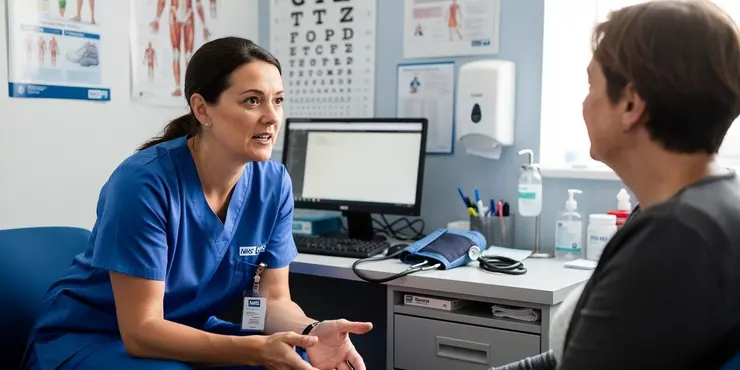
How is the Zika virus transmitted?
Relevance: 48%
-
Are new emerging pathogens a risk for blood safety?
Relevance: 47%
-
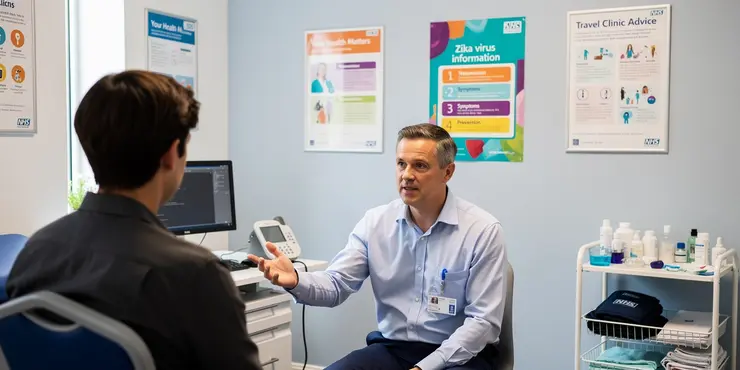
Can Zika virus be spread from person to person in the UK?
Relevance: 46%
-

Can syphilis be transmitted via blood transfusion?
Relevance: 44%
-
Blood Product Transfusions
Relevance: 44%
-
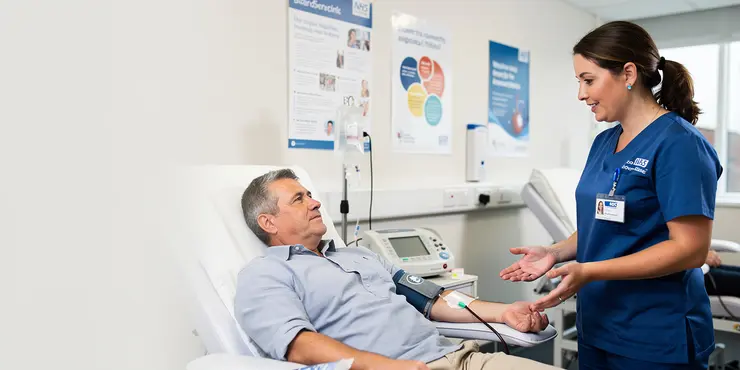
Are there any parasites that can be transmitted through blood transfusions?
Relevance: 44%
-
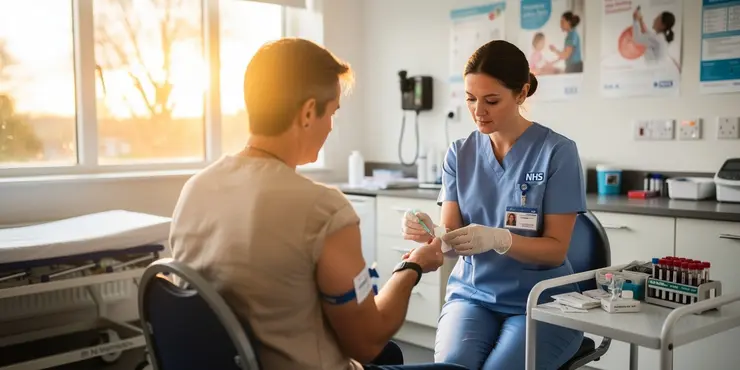
Is Chagas disease a concern with blood transfusions?
Relevance: 44%
-
What is a blood transfusion?
Relevance: 44%
-

How can charitable donations affect Inheritance Tax?
Relevance: 44%
-

How is West Nile Virus transmitted?
Relevance: 44%
-
Is malaria still a concern for blood transfusion safety?
Relevance: 43%
-

What measures are taken to prevent disease transmission in blood transfusions?
Relevance: 43%
-
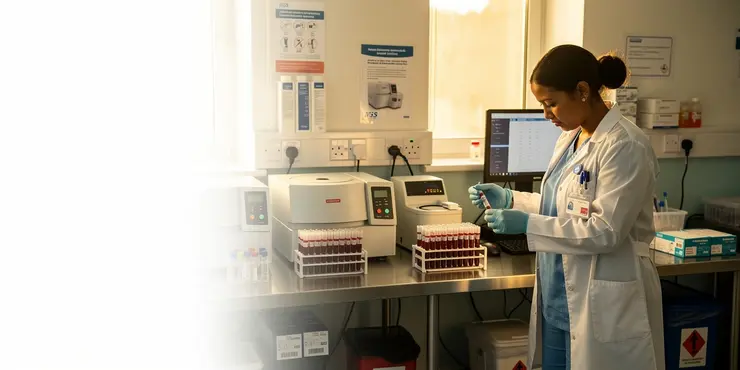
How do healthcare providers match blood for transfusions?
Relevance: 42%
-

Are there risks associated with blood transfusions?
Relevance: 41%
-

Is the Marburg virus related to the Ebola virus?
Relevance: 40%
-
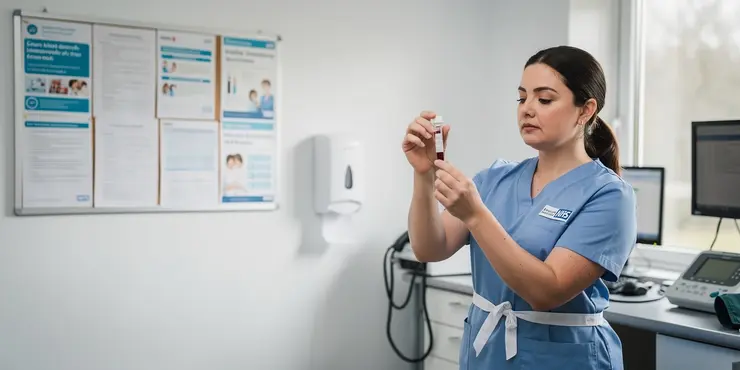
What is the most common disease transmitted by blood transfusion?
Relevance: 40%
-
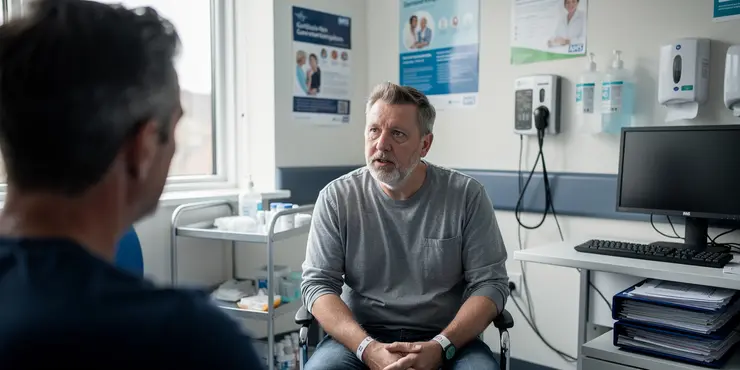
Kidney transplant waiting stories – DJ Ace and Lauren | NHS Organ Donation
Relevance: 40%
-
Can you get any prion diseases from blood transfusion?
Relevance: 39%
-

Is Zika virus present in the UK?
Relevance: 39%
-

How is Nipah Virus diagnosed?
Relevance: 39%
-

Is there a test for West Nile Virus?
Relevance: 38%
-
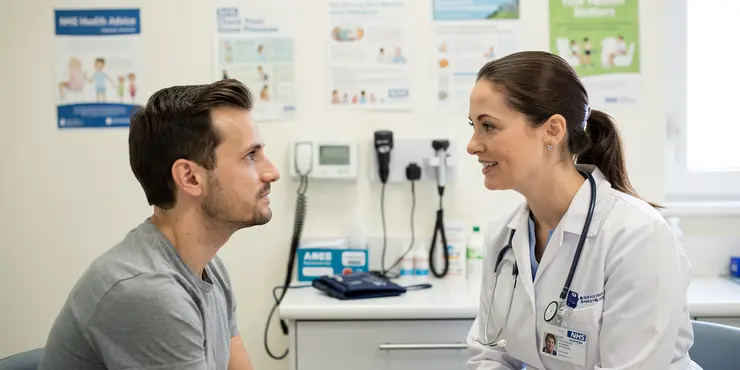
What is West Nile Virus?
Relevance: 38%
-

Can men in the UK transmit Zika virus if infected?
Relevance: 37%
-

What is the Ebola virus?
Relevance: 37%
-

Is the UK government providing guidance on Zika virus for travelers?
Relevance: 37%
-

How is Marburg virus disease diagnosed?
Relevance: 36%
-
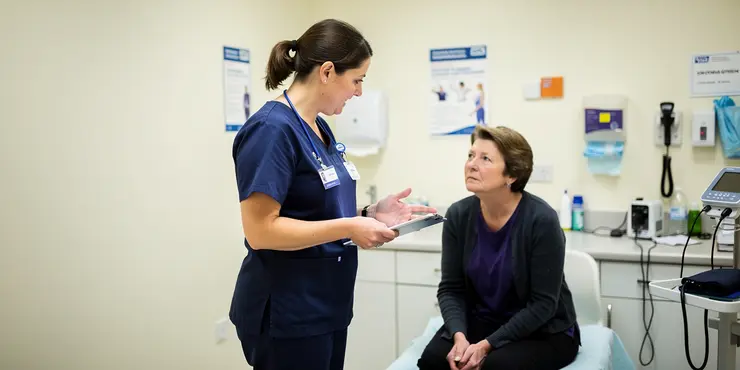
How is the Marburg virus transmitted?
Relevance: 36%
-

How is Chikungunya virus infection diagnosed?
Relevance: 36%
Introduction
Blood donations are a critical component of healthcare systems, ensuring that patients have access to the blood and blood products they need. To ensure the safety of blood transfusions, donor blood is rigorously tested for a variety of viruses and infectious agents. In the UK, the standards for blood testing are particularly stringent, reflecting the latest science and technology available to safeguard public health.
HIV and Hepatitis Viruses
One primary concern in blood transfusions is the transmission of HIV (Human Immunodeficiency Virus). All donated blood is screened for HIV-1 and HIV-2 antibodies and antigens, ensuring that any potential infection is detected early. Equally critical are the hepatitis viruses. Donated blood is tested for Hepatitis B through the identification of Hepatitis B surface antigen (HBsAg) and for Hepatitis C using nucleic acid tests (NAT) that detect viral RNA. These thorough testing procedures help prevent the bloodborne spread of these potentially life-threatening infections.
HTLV and Syphilis
Human T-lymphotropic virus (HTLV) is another virus screened in blood donations. HTLV can be transmitted through infected blood and can cause various disorders, including adult T-cell leukemia/lymphoma. In the UK, blood donations are specifically tested for antibodies to HTLV-I and HTLV-II to ensure no contaminated blood is transfused to patients. Additionally, blood donations are also screened for syphilis, a bacterial infection that can lead to severe health problems if untreated. The syphilis test checks for Treponema pallidum, the bacterium responsible for syphilis.
West Nile Virus and Zika Virus
Although less common in the UK, West Nile Virus (WNV) and Zika Virus are also part of the screening process, especially in scenarios where the blood donor has traveled to regions where these viruses are endemic. WNV is primarily transmitted through mosquito bites but can also be spread through blood transfusion. Zika Virus, known for causing congenital abnormalities, is also passed on through blood. Screening for these viruses ensures comprehensive safety in the blood supply chain.
Emerging Infectious Agents
The UK blood donation service is constantly evaluating the necessity of testing for emerging and re-emerging infectious agents as global health scenarios evolve. This includes monitoring diseases that could potentially affect the blood supply, such as Chikungunya and Dengue fever. Such proactive measures ensure that the UK's blood donation system remains responsive and resilient against new viral threats.
Conclusion
Testing blood donations for viruses is a vital step in ensuring the safety of blood transfusions in the UK. Through comprehensive screening processes for HIV, hepatitis, HTLV, syphilis, and other viruses, health professionals strive to maintain a secure and reliable blood supply. These rigorous standards protect both recipients and donors, thereby contributing significantly to public health and safety.
Introduction
Blood donations are very important for helping sick people. Hospitals need blood to help patients get better. Before the blood is used, it is tested to make sure it is safe. In the UK, these tests are very careful to keep everyone healthy.
HIV and Hepatitis Viruses
Doctors are very careful about stopping the spread of HIV, a virus that can make people very sick. They check all blood for HIV to catch any problems early. They also test for another group of viruses called hepatitis, which can also make people sick. The blood is checked for something called Hepatitis B and Hepatitis C. These tests help make sure everyone stays safe.
HTLV and Syphilis
HTLV is a virus that can sometimes cause health problems. Scientists check the blood for HTLV to make sure it is not there. They also check for a disease called syphilis, caused by a bacteria. Testing for syphilis ensures more protection from illness.
West Nile Virus and Zika Virus
Sometimes, blood donors have traveled to places with different viruses, like West Nile Virus and Zika Virus. These viruses can be spread by mosquitoes or through blood. So, doctors test for these too, to make sure the blood is safe.
Emerging Infectious Agents
Doctors and scientists keep looking out for new diseases that may spread. This includes diseases like Chikungunya and Dengue fever. By watching for new threats, the UK keeps blood donations safe for everyone.
Conclusion
Testing blood for viruses is very important to keep people healthy. Doctors test for HIV, hepatitis, HTLV, syphilis, and other viruses. This makes sure the blood supply is safe and helps protect everyone who needs a blood transfusion.
Frequently Asked Questions
What viruses are commonly tested for in blood donations?
Common viruses tested for in blood donations include HIV, hepatitis B, hepatitis C, HTLV, and West Nile virus.
Why is HIV tested for in blood donations?
HIV is tested for in blood donations to prevent transmission of the virus, as it can cause AIDS and is transmitted through blood.
Are donors tested for hepatitis B and C viruses?
Yes, donors are tested for both hepatitis B and hepatitis C viruses to ensure the safety of blood transfusions.
Is HTLV tested for in blood donations?
Yes, HTLV (human T-cell lymphotropic virus) is tested for because it can cause certain blood disorders and cancers.
Do blood donations get tested for West Nile virus?
Yes, blood donations are tested for West Nile virus to prevent its transmission through transfusions.
Are there tests for Zika virus in donated blood?
Yes, donated blood is screened for Zika virus in areas where there is a risk of transmission.
What is tested for to prevent transfusion-transmitted malaria?
Blood donors are screened using questionnaires to determine risk, and in some cases, serological or nucleic acid tests for malaria are used in endemic areas.
Is syphilis tested for in blood donations?
Yes, tests for syphilis are performed as part of the standard screening for donated blood to ensure it is safe for transfusion.
Are blood donations screened for Chagas disease?
Yes, donated blood is tested for Chagas disease, especially in areas where the disease is prevalent.
How do they test for CMV in donated blood?
CMV (cytomegalovirus) can be tested for via serological assays, though not all donated blood is routinely screened for CMV unless used for high-risk patients.
Do blood donations undergo testing for Ebola virus?
Ebola virus testing in donated blood is conducted during outbreaks or when there is a high risk of transmission.
Are blood donations checked for dengue virus?
Yes, in areas affected by dengue fever, blood donations may be screened for the dengue virus to ensure safety.
Is there testing for the human parvovirus B19 in donated blood?
While not routinely screened, parvovirus B19 testing can be conducted for certain high-risk patient populations and in specific circumstances.
How is HTLV detected in blood donations?
HTLV is detected using serological tests that identify antibodies to the virus in the donated blood.
Are blood donations screened for SARS-CoV-2 (COVID-19) virus?
Current policies do not require routine blood donation screening for SARS-CoV-2, as respiratory transmission is the primary concern.
What kinds of tests are used to detect HIV in donated blood?
HIV is detected using serological tests for antibodies and nucleic acid tests for viral RNA in donated blood.
Do donated blood samples undergo testing for hepatitis E virus?
Hepatitis E virus is not routinely tested in all locations but may be screened in specific situations or outbreaks.
Is screening for rabies virus required for blood donations?
Routine screening for rabies virus in blood donations is generally not performed, as transmission via blood is unlikely.
Are emerging infectious diseases considered in blood donor screening?
Yes, tests for emerging infectious diseases can be implemented as needed based on new outbreaks and scientific developments.
Why is nucleic acid testing used in blood donations?
Nucleic acid testing is used to detect the genetic material of viruses, providing highly sensitive and early detection of infections.
What viruses do doctors check for in blood donations?
When someone gives blood, doctors need to make sure it is safe. They check for certain germs called viruses that can make people sick. Doctors look for viruses like:
- HIV - This virus can cause a serious illness called AIDS.
- Hepatitis B and C - These viruses can hurt your liver.
- HTLV - This can affect your body's immune system.
- Syphilis - Doctors also check for this infection.
Doctors clean and check the blood to make sure it's safe for the person who will receive it.
If you want to learn more, you can ask a doctor or nurse. They can explain things in a way that is easy to understand.
When you give blood, doctors check for five common viruses. They look for: HIV, hepatitis B, hepatitis C, HTLV, and West Nile virus.
Here are some tips and tools to help understand:
- Ask someone to read with you.
- Listen to audio versions if available.
- Use apps that read text out loud.
Why Do We Check Blood for HIV?
When people give blood, doctors check it to keep everyone safe.
HIV is a virus that can make people very sick.
We test blood to make sure it does not have HIV. This helps keep people who get the blood healthy.
Tools to Help: Use pictures or stories to understand better. Talk to someone if you have questions.
We test blood donations for HIV. This stops HIV from spreading through blood. HIV can cause a sickness called AIDS.
Do they check donors for hepatitis B and C viruses?
Yes, they always check the blood of donors for these viruses. This is to make sure the blood is safe and healthy. The tests help protect people who get the blood.
If you find reading hard, you can:
- Ask someone to read with you.
- Use a reading app that reads the text out loud.
- Break the text into small parts and read slowly.
Yes, we check blood donors for two viruses, called hepatitis B and hepatitis C. This helps make sure that blood transfusions are safe.
Do they check for HTLV in blood donations?
When you give blood, they check it to make sure it is safe. One of the things they look for is called HTLV. HTLV is a virus that can make people sick.
If you want to learn more or need help understanding, here are some tips:
- Ask someone you trust to explain it to you.
- Use a computer or phone to search for videos about HTLV and blood donations.
- Write down questions you have and ask your doctor or nurse.
Yes, doctors test for HTLV. HTLV is a virus that can make us sick. It can cause problems with our blood and sometimes lead to cancer.
Tools like picture cards or apps can help you understand better. You can also ask someone you trust to explain it to you.
Do they check blood donations for West Nile virus?
Yes, they test the blood for West Nile virus to keep it safe.
If you want help reading, you can ask someone you trust to explain it. You can also use a reading app that reads the text out loud for you.
Yes, blood donations are checked for West Nile virus. This helps keep people safe when they get blood from someone else.
Do they check donated blood for Zika virus?
Yes, donated blood is checked for the Zika virus in places where people might catch it.
What is checked to stop malaria from blood transfusions?
When people donate blood, it is tested to make sure it is safe. This helps stop the spread of diseases like malaria.
Tools to help understand:
- Picture dictionaries for words like "malaria" and "transfusion".
- Audio recordings to hear the information read out loud.
- Simple videos that explain how blood donations are tested.
Before giving blood, people answer questions to check for risks. In some places where malaria is common, special blood tests are done.
Do they check for syphilis in blood donations?
When people give blood, doctors check the blood to make sure it's safe. They look for some illnesses, like syphilis. Syphilis is a sickness you can catch from someone else. It's important to check because we want the blood to be healthy for people who need it.
Helpful tips:
- When you read, try using a finger to point at the words.
- Break sentences down into smaller parts.
- Ask an adult if something is hard to understand.
Yes, when someone donates blood, doctors check for syphilis. This helps make sure the blood is safe to use.
Do they check blood donations for Chagas disease?
Yes, when people give blood, doctors check it for Chagas disease. They do this more in places where lots of people have the disease.
How do doctors check blood for CMV?
Doctors look at blood to see if it has a virus called CMV. They do this to keep the blood safe for people who need it.
First, they take a little bit of the blood and use special tests. These tests help find out if the CMV virus is in the blood.
If the blood is safe, doctors can use it to help people who are sick or need blood.
If reading is hard, try using a tool that reads out loud for you. You can also ask someone to help you understand the words.
You can test for CMV (cytomegalovirus) using a special blood test. But, not all donated blood is checked for CMV. Only blood for people who really need it is checked.
Do they check blood donations for Ebola virus?
When people donate blood, doctors check it to make sure it's safe. They look for viruses like Ebola. This helps keep everyone healthy.
If you want to learn more, you can ask doctors or look at helpful websites. You can also talk to someone who knows a lot about health.
Doctors test donated blood for Ebola when the disease is spreading or likely to spread.
Do blood banks check for dengue virus?
Yes, when people give blood, doctors check it for germs, like the dengue virus. This is to make sure that the blood is safe for others.
Here are some things you can do to understand better:
- Use pictures or drawings to help explain tough words.
- Ask someone to read with you if it's hard to read alone.
- Listen to the information if audio is available.
Yes, in places where there is dengue fever, blood tests might be done to check for the dengue virus. This is to keep people safe.
Do doctors check for human parvovirus B19 in blood donations?
Doctors don't usually test everyone for parvovirus B19. But they might test some people who are at higher risk or in special situations.
How do we find HTLV in blood donations?
HTLV is a virus. To find it in blood, we use special tests.
These tests look for tiny signs of the virus.
If HTLV is found, the blood is not used.
To make reading easier, use audio books or ask someone to read with you.
Doctors can find HTLV by using special tests. These tests look for signs that the body is fighting the virus. They do this by checking if there are special markers, called antibodies, in the blood that is given.
Do they check blood donations for the COVID-19 virus?
Right now, rules say we don't need to check blood donations for the COVID-19 virus. The virus spreads mainly through the air, like when people cough or sneeze.
What tests check for HIV in donated blood?
When people give blood, doctors must check it to make sure it does not have HIV. They use special tests to do this.
Here are the steps they follow:
- Look for HIV: They use tests to see if HIV is in the blood.
- Check for signs of HIV: They also look for things called antibodies. These tell us if HIV is there.
These tests help keep the blood safe for everyone. If you want to learn more or need help, you can ask a doctor or find good websites.
When people give blood, we test it to make sure there is no HIV. We check for HIV by looking for special things in the blood called antibodies and RNA.
Do doctors test donated blood for hepatitis E virus?
When people give blood, doctors check it to make sure it is safe.
They test the blood for different things that could make people sick, like a virus called hepatitis E.
If you want help reading, you can ask someone or use a tool that reads the words out loud.
Doctors do not always test for the hepatitis E virus everywhere. But they might test for it when there is a special reason or if there is a lot of sickness going around.
Do we need to check for rabies in blood donations?
When people give blood, it is checked for some diseases. This helps make sure the blood is safe for others to use. Some people might wonder if rabies needs to be checked in blood donations.
Rabies is a disease you can catch from animals, like dogs or bats. It doesn’t spread by giving or receiving blood. Because of this, blood donations are not usually checked for rabies.
If you have questions, it’s good to talk to a doctor or a nurse. They can give clear answers. Reading with a friend or using audiobooks can also help. Remember, it’s okay to ask for help if you need it!
Blood is usually not checked for the rabies virus because it is very unusual for rabies to spread through blood.
Do blood banks check for new diseases when testing donors?
Yes, we can make tests for new illnesses when needed. This happens if there is a new outbreak or when scientists learn more about the disease.
Why do we test blood donations with special tools?
We use special tests on blood donations to keep people safe. These tests look for tiny germs or viruses in the blood. Finding these germs helps keep the blood clean and healthy for others who need it.
Tools that can help you understand:
- Ask someone to read the words out loud with you.
- Use pictures or videos to learn how blood testing works.
Nucleic acid testing helps find the tiny parts of a virus. It shows if someone is sick, even before they feel bad.
Useful Links
This website offers general information and is not a substitute for professional advice.
Always seek guidance from qualified professionals.
If you have any medical concerns or need urgent help, contact a healthcare professional or emergency services immediately.
Some of this content was generated with AI assistance. We’ve done our best to keep it accurate, helpful, and human-friendly.
- Ergsy carfully checks the information in the videos we provide here.
- Videos shown by Youtube after a video has completed, have NOT been reviewed by ERGSY.
- To view, click the arrow in centre of video.
- Most of the videos you find here will have subtitles and/or closed captions available.
- You may need to turn these on, and choose your preferred language.
- Go to the video you'd like to watch.
- If closed captions (CC) are available, settings will be visible on the bottom right of the video player.
- To turn on Captions, click settings .
- To turn off Captions, click settings again.
More Items From Ergsy search
-

What other viruses are tested for in blood donations?
Relevance: 100%
-
Is Zika virus screened for in blood transfusions?
Relevance: 77%
-

Can you donate blood specifically for a friend or family member?
Relevance: 67%
-
Why is blood donation history important in preventing disease transmission?
Relevance: 66%
-

What diseases can be spread by blood transfusions?
Relevance: 56%
-

Can COVID-19 be transmitted through blood transfusions?
Relevance: 56%
-

Is Hepatitis B a risk in blood transfusions?
Relevance: 55%
-
Can Dengue fever be transmitted through blood transfusions?
Relevance: 55%
-

Blood Transfusion
Relevance: 52%
-

Is HTLV a risk in blood transfusions?
Relevance: 51%
-

How is blood screened to prevent disease transmission?
Relevance: 51%
-
Can HIV be transmitted through blood transfusions?
Relevance: 51%
-

How is the Zika virus transmitted?
Relevance: 48%
-
Are new emerging pathogens a risk for blood safety?
Relevance: 47%
-

Can Zika virus be spread from person to person in the UK?
Relevance: 46%
-

Can syphilis be transmitted via blood transfusion?
Relevance: 44%
-
Blood Product Transfusions
Relevance: 44%
-

Are there any parasites that can be transmitted through blood transfusions?
Relevance: 44%
-

Is Chagas disease a concern with blood transfusions?
Relevance: 44%
-
What is a blood transfusion?
Relevance: 44%
-

How can charitable donations affect Inheritance Tax?
Relevance: 44%
-

How is West Nile Virus transmitted?
Relevance: 44%
-
Is malaria still a concern for blood transfusion safety?
Relevance: 43%
-

What measures are taken to prevent disease transmission in blood transfusions?
Relevance: 43%
-

How do healthcare providers match blood for transfusions?
Relevance: 42%
-

Are there risks associated with blood transfusions?
Relevance: 41%
-

Is the Marburg virus related to the Ebola virus?
Relevance: 40%
-

What is the most common disease transmitted by blood transfusion?
Relevance: 40%
-

Kidney transplant waiting stories – DJ Ace and Lauren | NHS Organ Donation
Relevance: 40%
-
Can you get any prion diseases from blood transfusion?
Relevance: 39%
-

Is Zika virus present in the UK?
Relevance: 39%
-

How is Nipah Virus diagnosed?
Relevance: 39%
-

Is there a test for West Nile Virus?
Relevance: 38%
-

What is West Nile Virus?
Relevance: 38%
-

Can men in the UK transmit Zika virus if infected?
Relevance: 37%
-

What is the Ebola virus?
Relevance: 37%
-

Is the UK government providing guidance on Zika virus for travelers?
Relevance: 37%
-

How is Marburg virus disease diagnosed?
Relevance: 36%
-

How is the Marburg virus transmitted?
Relevance: 36%
-

How is Chikungunya virus infection diagnosed?
Relevance: 36%


